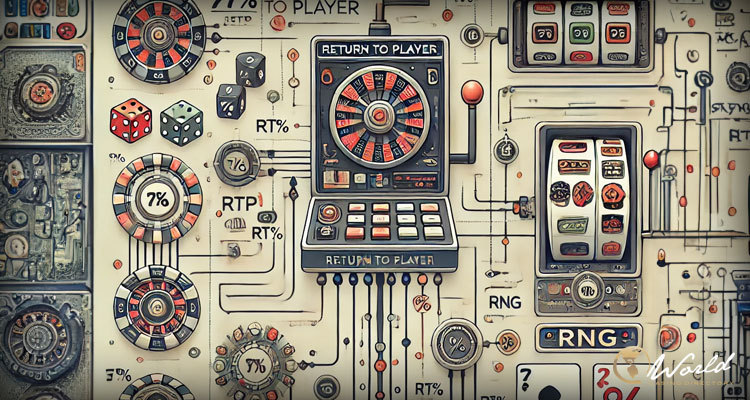Casinos, both online and land-based, thrive on the concept that games are provably fair, transparent, and secure.
Thus, it’s not about the flashing lights and the gambling tables alone; no one wants to play at any online casino USA if it’s already rigged against them. Due to this, gambling hubs have systems in place to ensure game integrity in the best way possible.
Two such ways are via RNGs and RTP, but the question is, “What are they, and how do they work?” In this article, we examine these two systems that ensure maximum gameplay fairness and transparency. We also discuss other measures casinos use to promote security and transparent gameplay.
Random Number Generators and How They Work
Random Number Generators, or RNGs, are complex algorithms that produce random game results. When gamblers spin a slot machine, these algorithms generate unpredictable outcomes. They create strings of numbers or symbols that strategy or game patterns cannot predict.
This system makes rigging games impossible, as it ensures the game’s results remain random. For instance, RNGs determine what symbols appear on reels in slot machines. This technology promotes fair gameplay, unpredictability, and randomness.
In casino slot machines specifically, RNGs are important to ensure the randomness of each spin. It helps ensure that the outcome of each spin doesn’t affect that of the next, i.e., each spin is independent of the rest.
How to Ensure a Casino Uses RNGs
The easiest way to confirm that a casino integrates RNGs and that the generators are random is to check its certification. Before gambling platforms can operate, specific regulatory bodies must have conducted rigorous tests to verify that the RNGs operate correctly on games. Once these agencies confirm that the casino games are safe and provably fair, the platforms are given licenses.
What is RTP?
RTP is short for Return To Player, a term for the calculated average amount a player can expect from wagers on a specific game. They are depicted in percentages, usually from 90% to 98%, representing the player’s odds of winning a game.
A game with an RTP of 94% implies that the player will get a return of $94 out of every $100 wager. However, this doesn’t guarantee that the precise return from every $100 wager will be $94; the game gets predictable. Rather, the higher the RTP, preferably over 95%, the more likely a player will win money.
The main advantage of RTPs is that they are not subject to human tampering, as the percentage is algorithm-based. It is computed based on millions of spins from gamers’ data all over the world.
However, it is important to note that RTP in a casino game doesn’t indicate how often or the amount a player will win in each session. Rather, it’s a simple way of measuring the overall payouts in slot machines and other games over time, as determined by the game’s volatility.
Game Volatility and How it Relates to RTP
Game volatility is a factor that determines each slot’s RTP; it depicts the regularity of a slot machine’s payout to the player. Volatility and RTP are connected in that two games with the same RTP may pay differently, depending on their volatility.
For instance, a low-volatility and high-RTP slot machine will pay frequently but in small amounts, compared to a high-RTP and high-volatility slot machine that pays less frequently but with more valuable prizes.
Other Ways Casino Ensure Fair Gameplay
Beyond RNGs and RTP systems, casinos and regulatory agencies enforce other measures to ensure game integrity compliance. As such, with the following practices, gamblers never have to worry about rigged games:
Licensing and Regulation
As mentioned earlier, licensing and regulation play a major role in enforcing fair and secure casino operations. Reputable gambling platforms with recognition from licensing bodies have been tested and trusted to confirm their ability to operate.
These bodies also conduct regular but random audits and inspections to ensure casinos don’t deviate from the norm. They examine different aspects of operations, including RNG fairness, security protocols, and more.
Secure and Fair Software
Gambling platforms also include games from renowned software developers with a reputation for creating fair games. Software from these developers goes through rigorous testing to confirm the integrity of their products.
Surveillance Systems
Sometimes, patrons may attempt to cheat when playing slot machines and other casino games. This is where surveillance systems come into play, monitoring each part of a land-based casino or the user interface of online platforms. Such technology helps promote maximum game fairness and security.
Encryption and Data Security
Fair gameplay also streams into encryption and data security. Online casinos use complex SSL encryption algorithms and firewalls to protect servers from unauthorized access. With these technologies, there is little to no risk of data being interceded between players and the casino.
It’s important to note that while RNGs and RTP are interrelated, one doesn’t directly influence the other.
